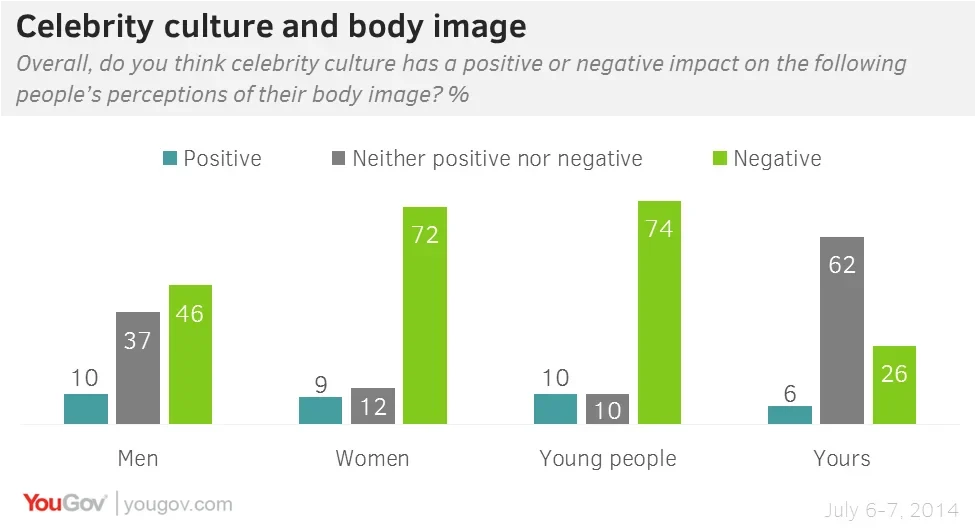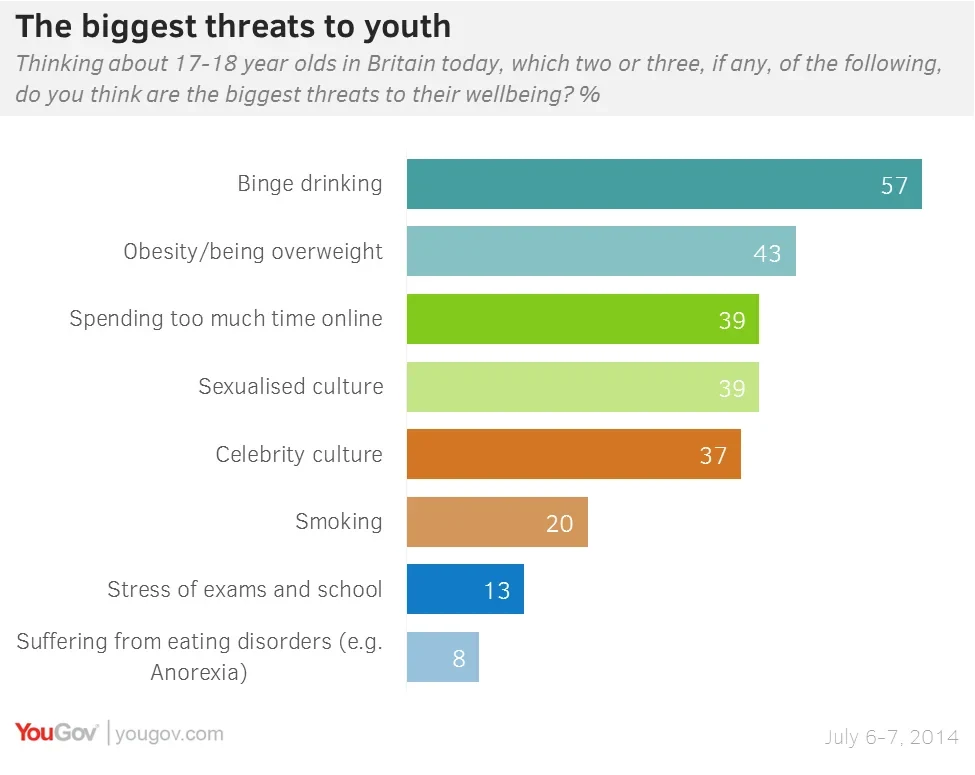74% believe celebrity culture is having a negative impact on young people, though obesity and binge drinking are more commonly seen as threats
‘Thinspiration’, a term used to describe things that inspire people to lose weight, has come under public scrutiny after husband of Made in Chelsea and Celebrity Masterchef star Millie Mackintosh used the word to describe a photo of her looking skinny on Twitter. The term is accused of encouraging bad eating habits and unhealthy body images, especially to young people and women, with some going as far as calling it pro-anorexic.
A new YouGov survey finds that the majority of British people (58%) think the term is inappropriate, including 52% of 18-24 year olds. Women are more likely than men to disapprove of the term, with 68% of women saying it is inappropriate compared to 50% of men.
The discussion over ‘thinspiration’ is part of a wider debate about how celebrity culture impacts British society, especially regarding body image and self-esteem. The survey shows that the majority of British people think that celebrity culture is having a negative effect on young people’s (74%) and women’s (72%) perceptions of their bodies; even 46% say it is having a negative effect for men.

Additionally, young people are more likely (32%) than average (26%) to say that celebrity culture is having a negative effect on how they perceive their own bodies, and are less likely (49%) than average (61%) to say they are happy with their weight and body image.
Other threats
The survey also asks which two or three problems are the biggest threats to 17-18 year olds today. Binge drinking and obesity are most commonly seen as the biggest threats, by 57% and 43% respectively. Celebrity culture is one of the next most common choices, along with spending too much online and sexualised culture.

Only 8% see the eating disorders at the heart of the 'thinspiration' controversy as one of the biggest threats to 17-18 year olds.
The term 'thinspiration' started its life on pro-anorexia and pro-bulimia blogs, which fetishise certain aspects of skinniness, such as jutting hip bones, visible ribs and "thigh gaps". The word has now entered the more mainstream media, however, with it being prevalent on celebrity Twitter accounts and on the photo-sharing website Pinterest.











